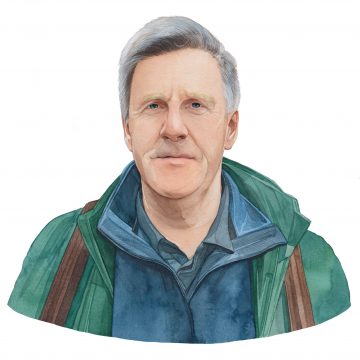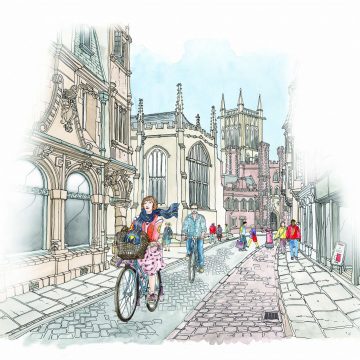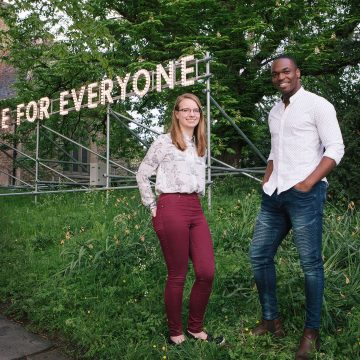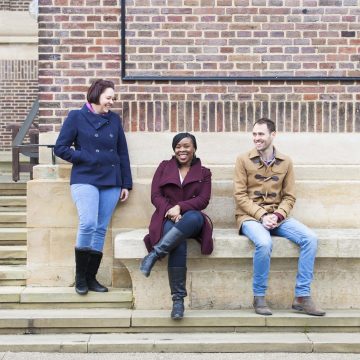Best in class
Everyone’s path to Cambridge is different and, as a stepping stone to study, the Foundation Year programme is giving outstanding students a chance they might not have expected.
While sixth form student Freddie King (Sidney Sussex) was weighing up his options for next steps, the thought of coming to Cambridge never occurred to him. But then his teacher mentioned the Cambridge Foundation Year, a brand new course and what seemed a golden opportunity. Suddenly the goalposts shifted.
“Up until then I hadn’t thought about Cambridge – I had ruled myself out,” says King, who was studying History, English Language, and Creative and Performing Arts at One Sixth Form in Ipswich. “But then I looked it up and saw the eligibility criteria were more encouraging. Disrupted education because of Covid didn’t count because everyone was in the same boat, but I qualified through a combination of my school and my family’s financial situation. I applied, but I didn’t let myself get stressed out about it – I didn’t think for one minute I would be accepted.”
But accepted he was, although he took his time once the offer was made. “After the initial huge excitement of the offer, I felt I didn’t want to jump the gun. The course is free, but my father was wary about me taking another year in higher education. And I was terrified!”
Overcoming that fear, however, King joined 46 other pioneering Foundation Year students last September, under the watchful eye of course Director Dr Alex Pryce. “It was so exciting seeing the group moving from being names on a spreadsheet into real students,” she says. “They are shaping up to be really promising, and many are unrecognisable in their confidence levels from when they arrived. Studying at Cambridge is helping them to realise their academic potential and allowing them to show what exceptional students they can be.”
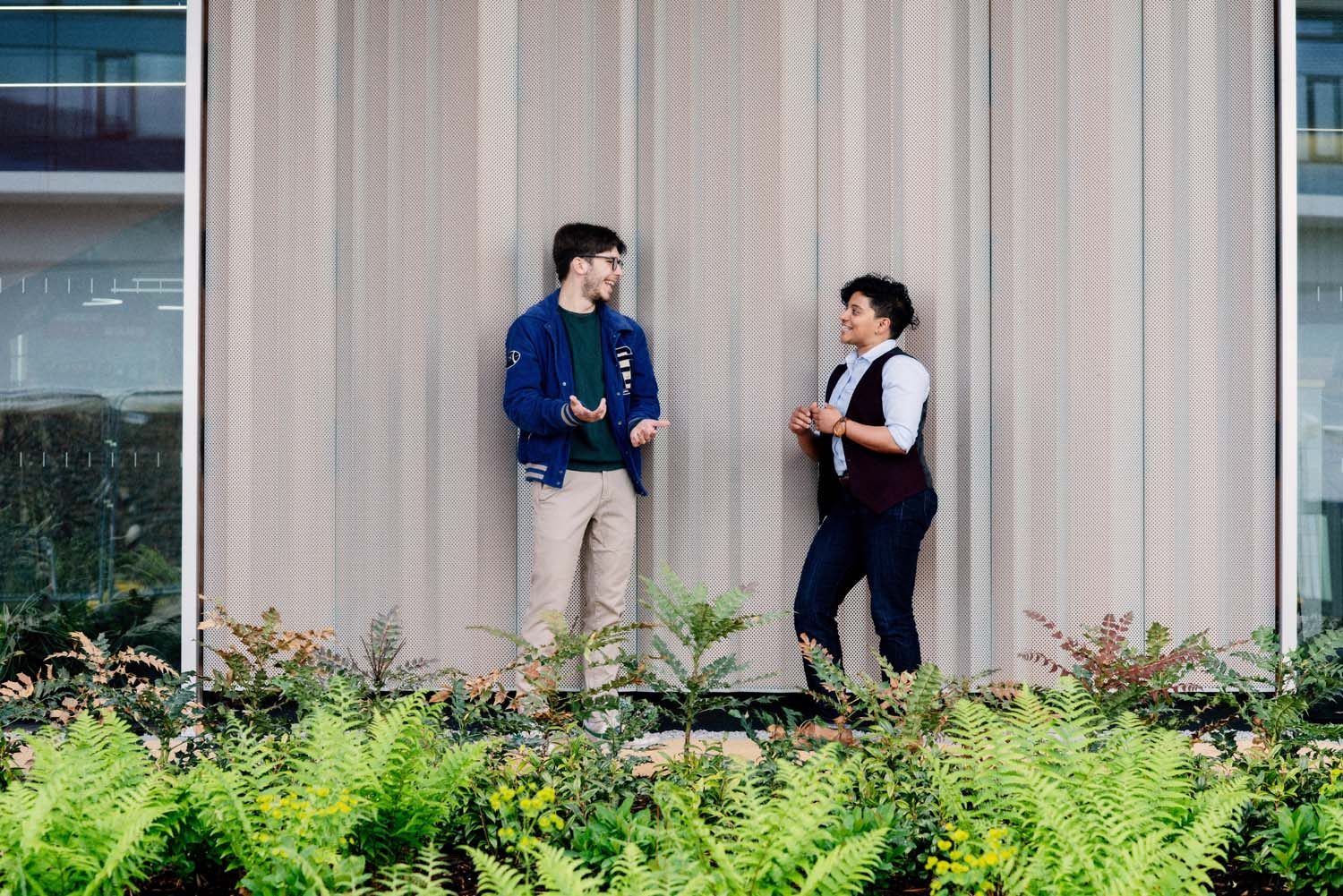
The aim of the Foundation Year is to offer a stepping stone to Cambridge for those who have experienced educational disadvantages and whose circumstances have prevented them from realising their full academic potential to date. “We know there are hundreds of things that can make students ABB not A*AA,” says Pryce. “They might have experienced close family bereavement, have caring duties, been in care themselves, moved schools several times or be refugees, for example. The school or college they attend might regularly perform poorly at inspection or have a below-average number of students staying in education. In these sorts of exceptional contexts, students don’t have the circumstances to realise their true, innate potential or to focus on their studies in ways that others can, and they miss out on the top grades they would otherwise have been capable of.”
Pryce points out that the Foundation Year is part of the University’s programme of widening participation. “We did a lot of research, and we know that our wide but targeted eligibility criteria means we can reach students with exceptional potential. We are not taking broad brush strokes – it is about offering individual opportunities to people who otherwise might not even try to apply to Cambridge.”
People like Amira Mumin (Murray Edwards), another of the first cohort, who hadn’t told anyone that she was even applying for a place. “I just decided to do it, I didn’t think too much about it. I told them when I got in. It was less pressure and best for me.”
After finishing her sixth form studies in History, Psychology and Sociology in London, Mumin had read about the Foundation Year online. “I got lucky. I was on a gap year, working in various jobs in London, applying to universities second time round. And while I was researching courses I came across Cambridge and saw I met the criteria for the Foundation Year. And I thought to myself: ‘If I can just take that chance…’”
Mumin found that just being in Cambridge took a bit of getting used to. “In terms of fitting in as a person of colour, it is something you must get ready for before you arrive. I grew up in London and the people I was used to being around look very different from here.”
These students are intellectually flexible, and it’s fantastic to watch. Most change takes a long time, but this feels like a much more rapid engine
The Foundation Year is open to UK residents only; this year the scheme received around five applications per place, which aligns with the average for undergraduate places. The admissions process is through a cross-collegiate panel, with 12 Colleges currently taking part in the programme. Students apply for a multi-disciplinary pre-degree course in the Arts, Humanities and Social Sciences, with options to choose papers from across several disciplinary streams. There are no tuition fees and students receive a scholarship to cover rent and other living costs.
“We knew we wanted to do something a bit different with our Foundation Year and a key part of the consultation process was agreeing on and setting up the multi-disciplinary approach,” says Pryce. “Students who have less support tend to gravitate towards those undergraduate courses that are more job-orientated, like Law. Meanwhile, some subjects don’t see as many applicants because they are simply not taught in many schools and colleges at sixth form – take Modern Languages, Music and History of Art. We give Foundation Year students the opportunity to explore their academic options.”
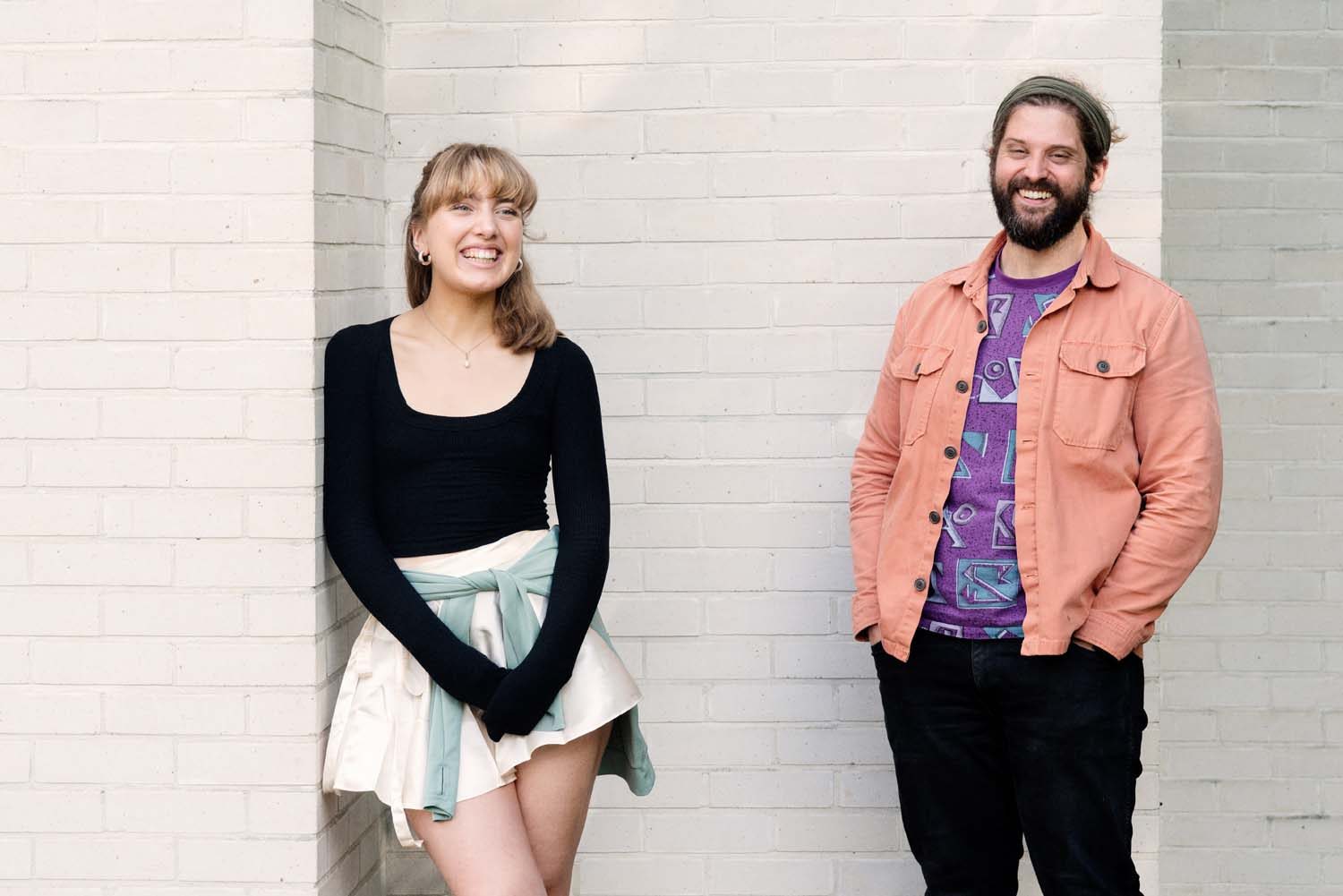
Dr Stuart Palmer, Director of Admissions at Murray Edwards and Foundation Year Teaching Associate, spent much of last spring and summer working with his colleagues to design the teaching modules. “It was a challenge because this was something completely new for Cambridge, but also very rewarding. In academia you are very rarely given the time and space to sit back and think about a new teaching programme.”
Palmer, whose own research focuses on popular politics and religion in early modern Britain, has been teaching the evolution of corporations and the history of corporate law. “Last term it was post-Windrush poetry – I set the historical context for the 1950s. That’s quite a long way from my comfort zone in terms of research but here we teach as a team. The broad range of skills among my colleagues makes a real difference.”
All the Foundation Year students are taught centrally on a site in West Cambridge and Palmer says supervisions are never quiet.
Now they are starting to think at a higher level about complicated concepts, rather than just giving their emotional response. In short, they are starting to think like Cambridge students
“When you give them a difficult concept, they are not shy to offer their thoughts and not afraid to challenge each other or change their positions. These students are intellectually flexible, and it’s fantastic to watch. Most change takes a long time, but this feels like a much more rapid engine.
“We take students who, for a variety of external reasons, didn’t perform to the standard they were capable of in their prior qualifications, and through an intensive one-year course bring them to Tripos level. They start out with very different academic profiles from their peers – they come from a very diverse range of backgrounds. Hopefully they will challenge the perception of what a typical Cambridge student looks like. Working with exceptional students is always a privilege and especially so with these students.”
Pryce, a Fellow of Homerton who studied contemporary Northern Irish poetry and feminism for her own DPhil, has also relished the classes. “Multi-disciplinary classes can make for interesting discussions. I was teaching a seminar about south-east Asian religion and fiction recently and there were students interested in literature, in theology, in social sciences, as well as several students who could bring their personal experience to bear.”
When they arrived, many of the students didn’t have the confidence to express their ideas or the experience to refine them, she says. “Now they are starting to think at a higher level about complicated concepts, rather than just giving their emotional response to the question. In short, they are starting to think like Cambridge students.”
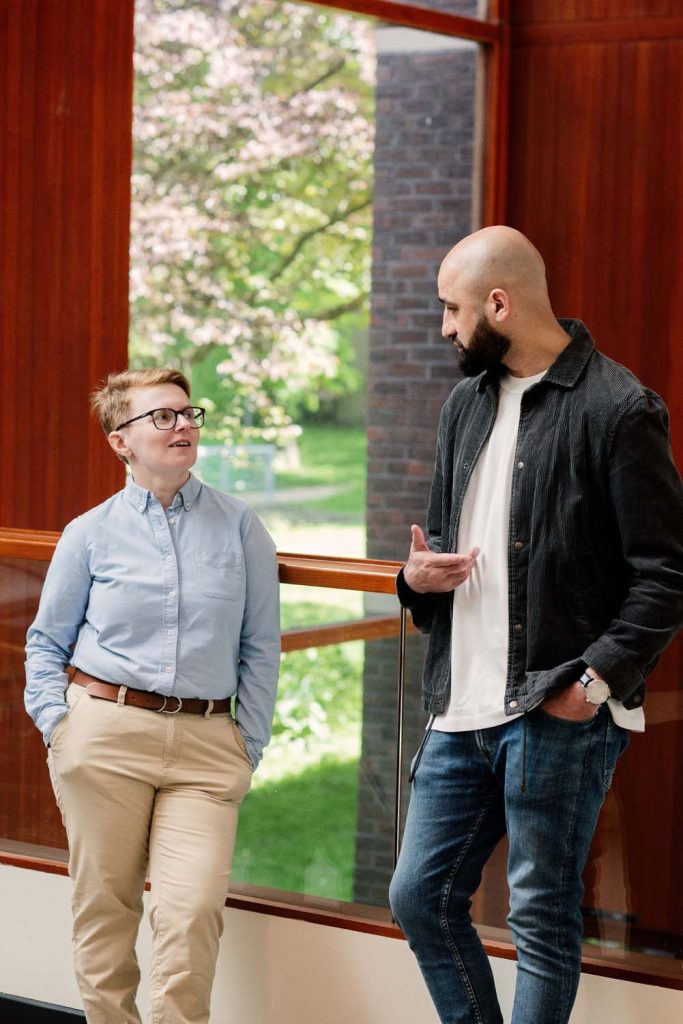
Freddie King says he has been working harder than ever before. “It’s a very full-on course. I know this is Cambridge, but it really stands out from other foundation courses that might seem like softer options. I am doing much more reading and writing, and I am also getting better at planning when I work.”
King had applied to study law at other universities before being accepted on the Foundation Year. “Now I am thinking about reading Philosophy. I have really enjoyed Dr Shyane Siriwardena’s supervisions on the British education system seen through a philosophical lens. I am doing some Plato for my extended project to make sure philosophy is what I want to read.”
He is applying to other Russell Group universities as well as Cambridge for his undergraduate course. “I love being here, but I am trying to keep my options open and looking at other courses like philosophy with law. I hang behind after supervisions to get advice from the lecturers – Stuart has been really helpful because he has so much experience.”
The students live in College and have plenty of opportunity to share experiences with the undergraduates. “I was so sure I wouldn’t get in I didn’t bother to choose a College, so I feel really lucky to be at Sidney Sussex,” says King. Everyone has been really nice and interested in what I am learning, especially the different academic structure. And I would have been in the College panto if I hadn’t had fresher’s flu!”
Mumin, who is at Murray Edwards, found that integration with other Cambridge students can physically be harder for those on the Foundation Year, simply because they are taught away from the Sidgwick Site, in their own group in West Cambridge. Still, she is thrilled with the course so far.
“I have every intention of staying on in Cambridge. I study what excites me, and one of the great things about the foundation course is that you get to explore. It is completely different from sixth form – a lot of pre-reading and one-on-one teaching. And I have decided I really like studying law.”
Mumin is involved through the Somali Society in reaching out to pupils from Year 11 and above at schools in deprived London boroughs. “As someone who has witnessed the programme first hand, I am here to tell them it is possible to get to Cambridge. It needn’t be just an aspiration. Just look at me!”
The pilot of the Foundation Year has been made possible by the generosity of many donors, including a cornerstone donation from Christina and Peter Dawson. Find out more about supporting the Foundation Year.

